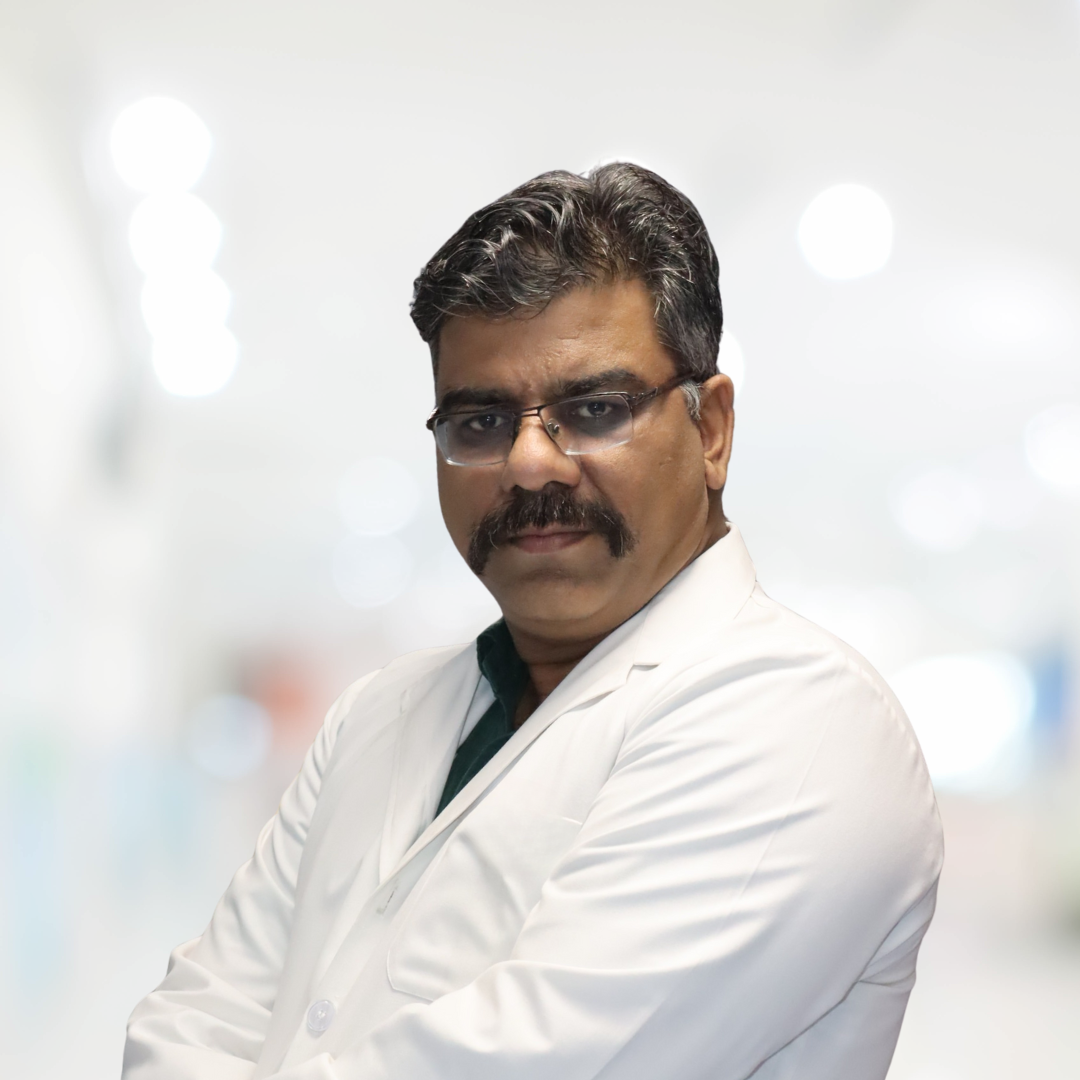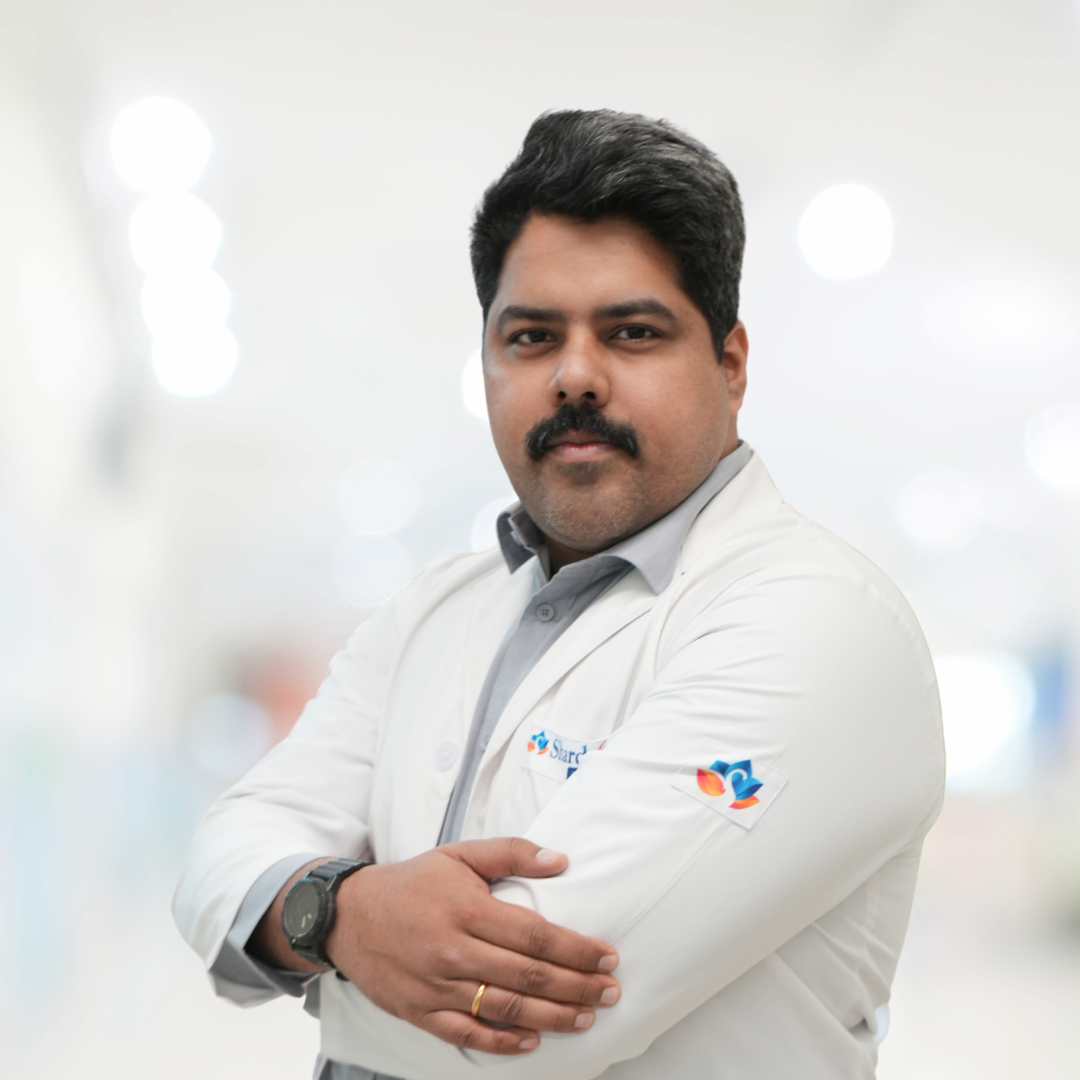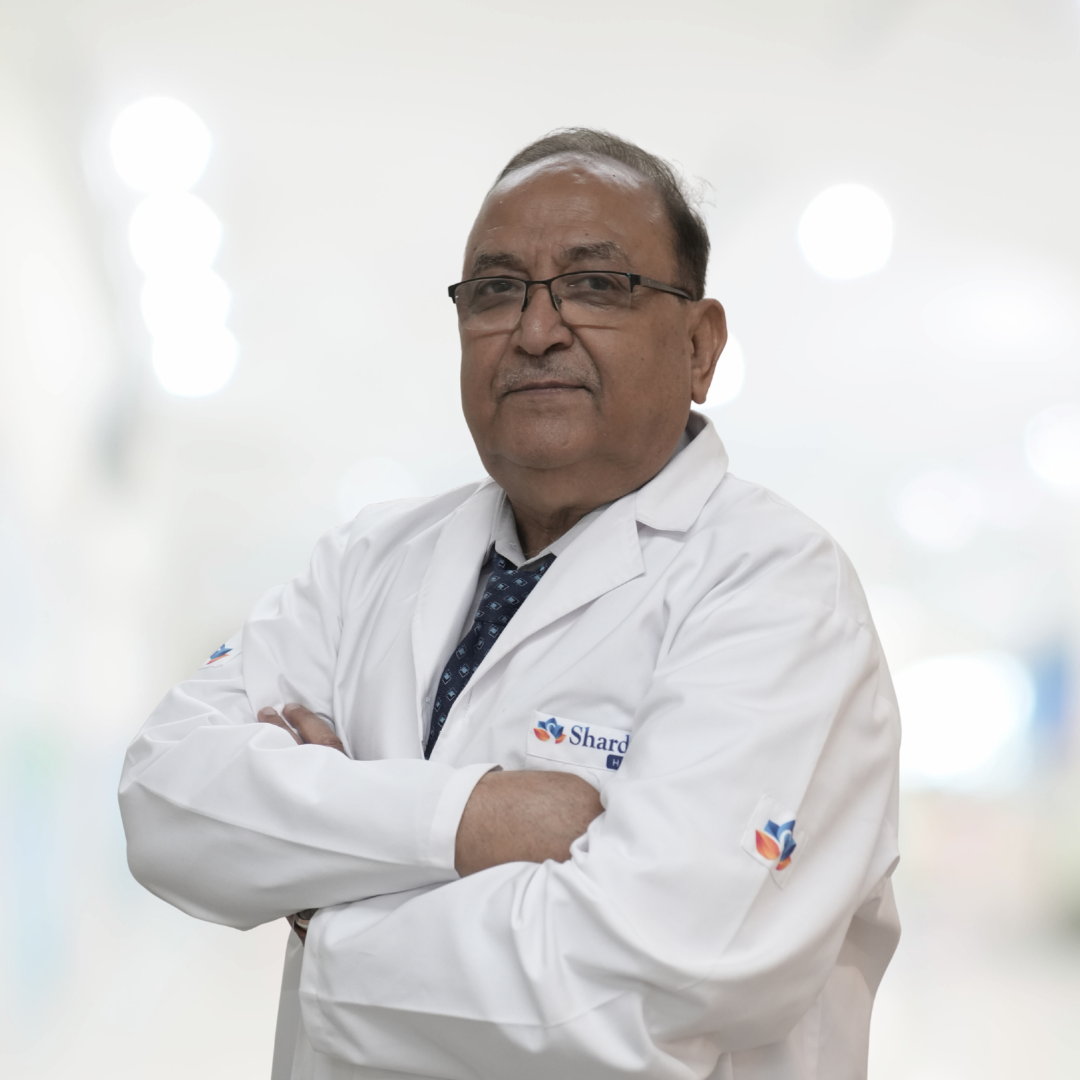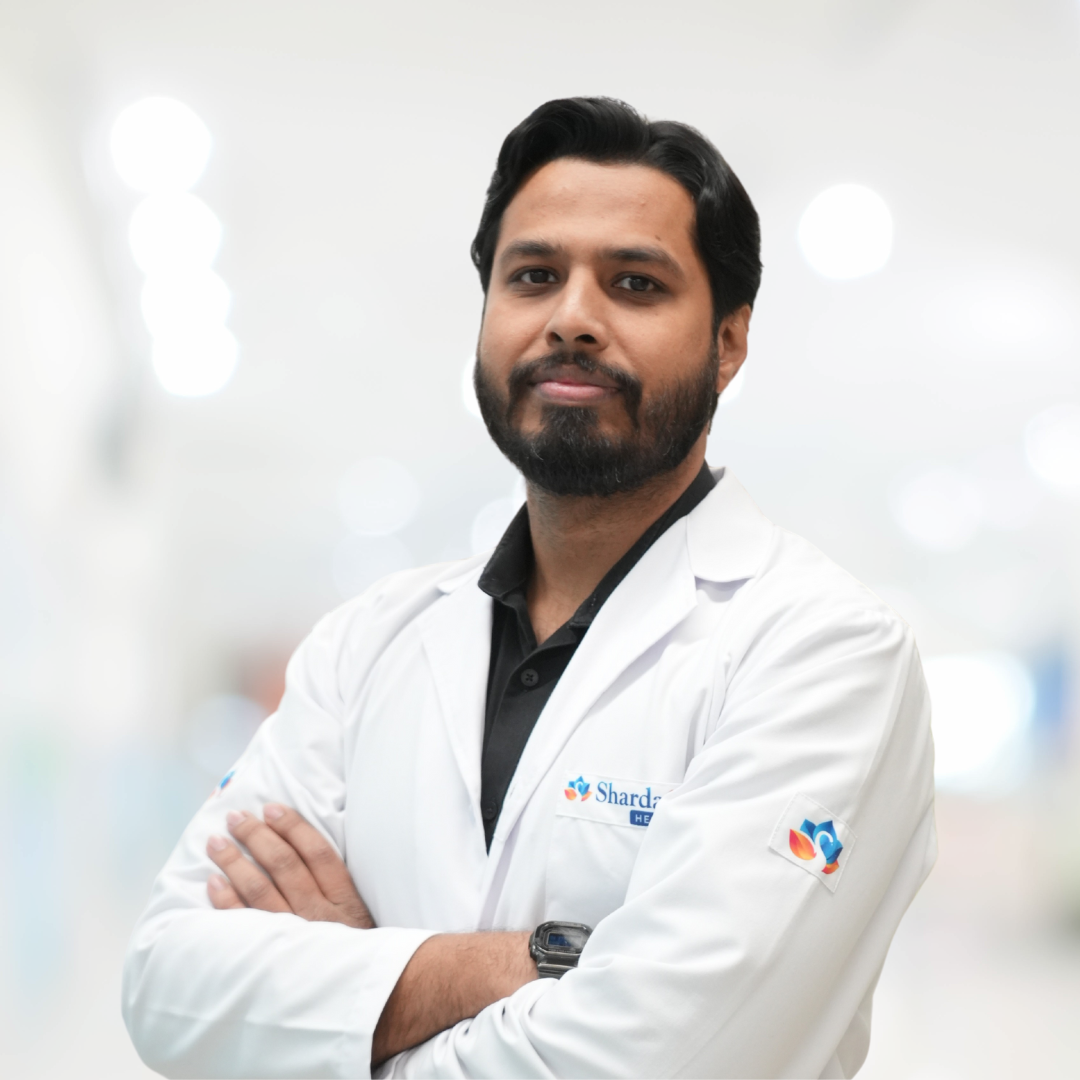
Total Hip Replacement Surgery at ShardaCare – Healthcity
At ShardaCare - Healthcity, we specialize in Total Hip Replacement Surgery, designed to alleviate Hip Pain and enhance functionality by resurfacing the Bones within the Hip Joint. Our skilled Surgeons Replace the damaged femoral head with a Prosthetic ball-shaped component, which seamlessly integrates with a cup-shaped prosthesis to form the new socket of the Pelvis.
During the procedure, our Surgeons meticulously remove the affected sections of the Hip Joint and Replace them with durable components typically made of Metal, Ceramic, and High-Grade Plastic. This Artificial Joint, or Prosthesis, effectively reduces Pain and improves overall Hip function, allowing patients to regain mobility and enjoy a better quality of life.
Reasons for Hip Replacement Surgery
- Osteoarthritis: Also known as wear-and-tear Arthritis, Osteoarthritis damages the smooth cartilage covering the ends of Bones, leading to Joint Pain and Stiffness.
- Rheumatoid Arthritis: An autoimmune condition, Rheumatoid Arthritis causes inflammation that can damage cartilage and underlying Bone, resulting in Joint deformity and dysfunction.
- Osteonecrosis: Insufficient Blood supply to the Hip Joint's Ball Portion, often due to dislocation or fracture, can lead to Bone collapse and deformity.
Looking for an Expert
Sharda Care The Healthcity is home to some of the eminent Doctors in the world.
Book an Appointment























